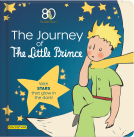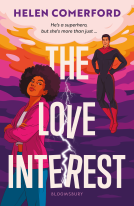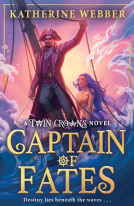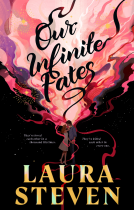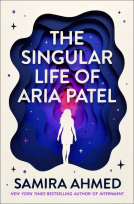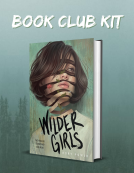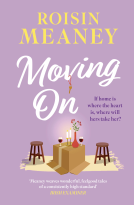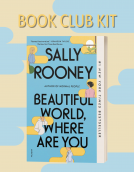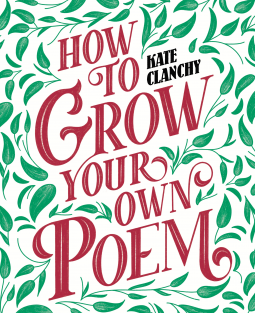
How to Grow Your Own Poem
by Kate Clanchy
This title was previously available on NetGalley and is now archived.
Send NetGalley books directly to your Kindle or Kindle app
1
To read on a Kindle or Kindle app, please add kindle@netgalley.com as an approved email address to receive files in your Amazon account. Click here for step-by-step instructions.
2
Also find your Kindle email address within your Amazon account, and enter it here.
Pub Date 3 Sep 2020 | Archive Date 3 Sep 2020
Pan Macmillan | Picador
Talking about this book? Use #HowtoGrowYourOwnPoem #NetGalley. More hashtag tips!
Description
Do you want to write a poem? This book will show you ‘how to grow your own poem’ . . .
Kate Clanchy has been teaching people to write poetry for more than twenty years. Some were old, some were young; some were fluent English speakers, some were not. None of them were confident to start with, but a surprising number went to win prizes and every one finished up with a poem they were proud of, a poem that only they could have written – their own poem.
Kate’s big secret is a simple one: is to share other poems. She believes poetry is like singing or dancing and the best way to learn is to follow someone else. In this book, Kate shares the poems she has found provoke the richest responses, the exercises that help to shape those responses into new poems, and the advice that most often helps new writers build their own writing practice.
If you have never written a poem before, this book will get you started. If you have written poems before, this book will help you to write more fluently and confidently, more as yourself. This book not like other creative writing books. It doesn’t ask you to set out on your own, but to join in. Your invitation is inside.
Available Editions
| EDITION | Other Format |
| ISBN | 9781529024692 |
| PRICE | £14.99 (GBP) |
| PAGES | 256 |
Featured Reviews
 jeanie m, Reviewer
jeanie m, Reviewer
With thanks to netgalley for an early copy in return for an honest review
What a fabulously warm and inviting book it's a real go to book that I can dip in and out of with many thanks I can highly recommend.
 Rachael P, Reviewer
Rachael P, Reviewer
How to Grow Your Own poem was a book I was interested to read, as I follow Kate Clanchy on Twitter and love reading her students’ poems, but when I first opened it and saw that yes, it really is a book about how *you* can write poetry, rather than a book about how she’s taught her students to do that, I was less sure that I was the target reader. I write, but not really poetry (although I have dabbled.)
HOWEVER, once I started reading this, I finished it in less than 24 hours. Yes, I still think it’s intended mainly for people who want to try writing poetry, but lots of its insights would be relevant for other kinds of writer too, and I think even non-writers who just like reading poetry would find it an interesting read - so much so, that I’m contemplating buying a copy for my mum, who doesn’t write at all.
In short, highly recommended!
‘I believe that composing poem is a fundamental human activity...’ This book takes you by the hand and shows you how to write your own poem. Poetry is everywhere, and Kate Clanchy shows you where to find it, how to look for it. Full of practical exercises, it can be used and adapted to teach at different stages at school. However, it can be used by adults and it would be very useful for teachers who want to write their own mentor texts; writers-teachers. In fact, you will find so much in ‘How to grow your own poem’ that you need to savour it with care, and certainly revisit this book a few times. You are not only getting a book but also a guide into the world of poetry.
 Librarian 657815
Librarian 657815
I requested this book because I have always loved Kate Clanchy’s writing and wanted to see what she was saying.
This is an exciting book which aims to make poetry writing accessible to all by demystifying it. I love that she starts with ‘magic spells’ because ‘ almost nobody’ finds it easy to believe their experiences belong in a poem. Clanchy offers scaffolding to get writers started and I can see that the first task, to take from real life, could be attempted by writers of any age: ‘ nothing is too mundane for this poem’. Clanchy then breaks the task down line by line and writes with such confidence that it is impossible not to grab a pen and give it a go yourself!
Clanchy’s writing is persuasive and confidence-inspiring. She works hard to validate all experience and help individuals draw in their own perspectives to write. This book clearly encourages everyone to try writing their own poem; the emphasis is on ‘own’ - Clanchy goes to great lengths to include a wide range of voices in her book to make this act as widely accessible as possible.
I can imagine this book inspiring any mildly curious person to follow the instructions and write a poem. I can also see how useful this will be to teachers in the classroom and many of the activities in this book would translate into suitable lessons or creative writing opportunities; this is of no surprise, given Clanchy’s teaching background,
This is a fabulous book. It is instructive through it’s deconstruction of the myth that poems are difficult to write and understand. Buy it, read it, try it - you won’t be disappointed!
